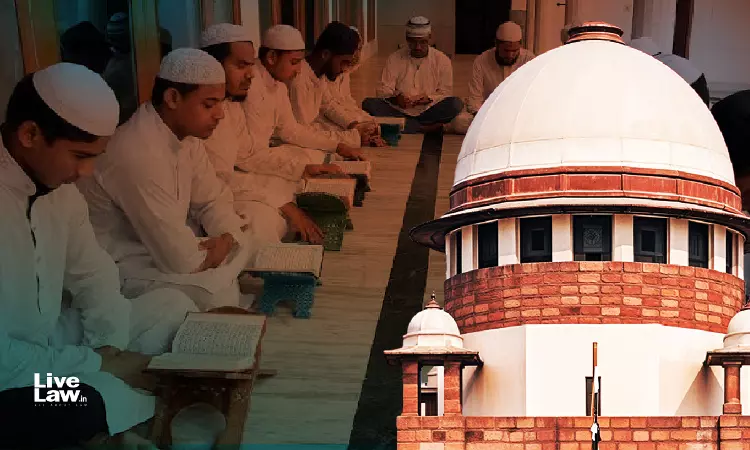
1.Supreme Court Ruling on Madrasa Regulation
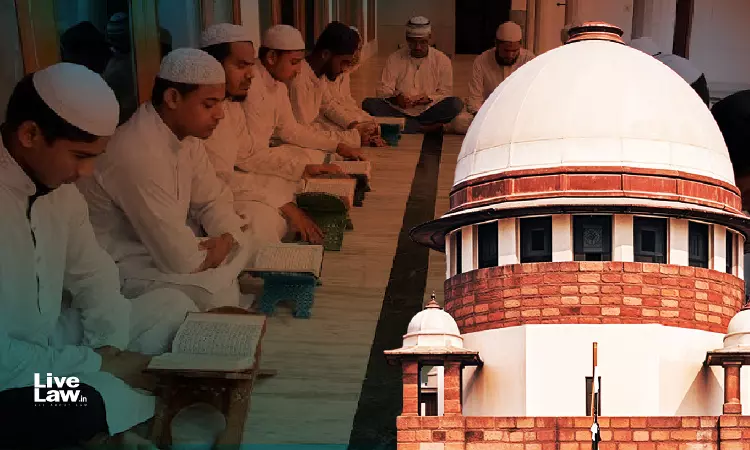
Background: The Supreme Court of India upheld parts of the Uttar Pradesh Madrasa Education Board Act 2004, which gives permission to the state to regulate madrasas through uniform quality in education.
Key Take-aways
-
Regulation of Standards: The state is authorized to maintain educational standards in minority-run religious institutions.
-
Minority Rights: The Supreme Court recognized the rights of minorities to manage their religious institutions.
Scope & Limitations: This judgment partly approved the act, excepting provisions of higher education that have been brought within the purview of the Union.
Importance for Exams:
-
Constitutional Relevance: The case is relevant to the concept of balancing minority rights with state control over education under Articles 29 and 30 of the Indian Constitution.
-
Judicial Review: The judgment forms a precedent for conducting an examination into the state's interference in religious departments.
2. Economic Doctrine and Property Rights
Supreme Court Decision: The Jurisdiction of the Nine Judge Bench supported the Respondent’s Counsel’s view and Departed from the High Shedding Power Doctrine Under the Economic Philosophies.
Additional Points:
-
Change in the Economic System: This judgement captures the essence of the transition in the Indian economy from the pure socialism to a mixed economy where both public and private investments co-exist.
-
Justice V.R. Krishna Iyer’s Doctrine: The court moved from the position which was in favor of state control of productive resources to one of individual rights.
Significance for Examinees:
-
Economic Reforms: This decision is critical in the context of the economic transformations in the indore post 1991, rajiv gandhi economic reforms.
-
Land Acquisition and Property Rights: Important in General Studies papers, Law papers, as well as Economics papers.
3. Azerbaijan’s Energy Profile
Summary: The availability of natural oil and gas resources makes Azerbaijan an economically and geopolitically important state because of her energy exports.
Key points:
-
Economic Dependency: Oil and gas accounts for about 35% of the nominal GDP of Azerbaijan and nearly 50% of its budget.
-
Goals on Green Energy: The country projects to add about thirty percent of renewable energy by the year 2030 and cut down the green emissions by forty percent from the year 2050.
Importance for Exams:
-
International Relations: The foreign policy of Azerbaijan in terms of global energy comes from the country’s role in lessening the dependence of Europe from the transport of Russian gas.
-
Sustainable Development Goals (SDGs): The country’s ambitions about renewables also serve the purpose of the sustainable development goals.
4. India’s Bid for the 2036 Olympics
The letter of intent by India to host the Olympics in the year 2036 has already begun. Now, the country enters the rigorous selection process.
Key Points
-
Contenders : The citizens of India have contenders in Chile, Indonesia, and Turkey while Saudi Arabia and Qatar already got into the fray.
-
Restrictions: Infighting within the Indian Olympic Association and infrastructural necessities will act as bottlenecks for this job at hand.
Importance of Examination
-
International Sports and Diplomacy: Organizing the Olympics would elevate the status of India at the international level, as it would be able to perform the mega-event itself.
-
Programmes under Government: Determination of sport budget and plan by the government for development can prove helpful on subjects related to public administrations.
5. Exercise VINBAX-2024: India-Vietnam Bilateral Military Collaboration
Overview: The 5th Edition of the bilateral exercise between India and Vietnam dubbed VINBAX was conducted at Ambala, India, and centred on peace support operations and inter-operability.
Key points
-
Multi-Disciplinary Involvement: For the first time, this exercise involves the Army and Air Force at the same time from both countries.
-
Aim: Develops understanding and inter-operability and exchange of practices in accordance with Chapter VII of UN Charter on Peacekeeping Operations.
Importance for Exams:
Defence Cooperation: This exercise brings into the focus India’s enhancing defence relations with the nations of Southeast Asia, a significant aspect of the Framework of International Relations.
Peacekeeping Missions: Objectives of UN peacekeeping missions as well as India’s role are relevant from both IR and security management perspectives.
6. India-Algeria Defence MoU
India and Algeria have concluded an MoU to strengthen defence ties, in line with strategic interests.
Key Points
-
Geopolitical Context: Algeria belongs to the Maghreb region; she shares borders with North African states from the north, northeast, and southeast, with a notable Mediterranean coastline.
-
Natural Resources: Having vast oil reserves, Algeria becomes strategically very important for defence and economic considerations too.
Important for Exams
-
Strategic Geography: An overview of where Algeria is located and its relevance to North Africa adds depth to understanding the reach of India's defense outreach.
-
India's Africa Policy: This MoU aligns with the general approach of engagement by India with African countries, crucial to consider for UPSC CSE.
7. Cultural Diplomacy: Tumaini Festival in Malawi
Overview: It holds every year in Dzaleka Refugee Camp, Malawi. In Tumaini Festival, refugee strength celebrates itself through arts and culture.
Key Points
-
Purpose: It is a platform for cultural dialogue that breaks stereotypes and promotes inclusiveness.
-
Importance: This fosters cultural diplomacy and makes experiences of refugees human.
Important for Exams
-
Cultural Diplomacy: This is pretty much key for soft power, rights, and then refugee rights, and how this impacts on diplomatic relations.
-
Global Refugee Crisis: Researching issues related to refugees will help in better preparation of international humanitarian policies and current affairs.
8. Recent Awards in Literature and Human Rights
Notable Recognition:
-
Jenny Erpenbeck’s Kairos has caught the attention of the heated controversy over outstanding translated fiction. This is the International Booker Prize.
-
TBA 2023: A prize won by Paul Lynch for his novel Prophet Song.
-
Gandhi Peace Prize: Gita Prize award received for Gorakhpur 2024.
Importance for Exams
-
Cultural Awards: Knowledge of awards at global scale and understanding their purpose helps in comprehending the cultural contribution across the globe.
-
Human Rights: Recognition by awards of work done by human rights entities is useful for Ethics and Social Issues papers as it shows the imprimatur of civilised existence across all the nations.
1.मदरसा विनियमन पर सुप्रीम कोर्ट का फैसला
पृष्ठभूमि: भारत के सर्वोच्च न्यायालय ने उत्तर प्रदेश मदरसा शिक्षा बोर्ड अधिनियम 2004 के कुछ हिस्सों को बरकरार रखा, जो राज्य को शिक्षा में समान गुणवत्ता के माध्यम से मदरसों को विनियमित करने की अनुमति देता है।
चाबी छीनना
-
मानकों का विनियमन: राज्य अल्पसंख्यक संचालित धार्मिक संस्थानों में शैक्षिक मानकों को बनाए रखने के लिए अधिकृत है।
-
अल्पसंख्यक अधिकार: सर्वोच्च न्यायालय ने अल्पसंख्यकों के अपने धार्मिक संस्थानों के प्रबंधन के अधिकारों को मान्यता दी।
दायरा और सीमाएँ: इस निर्णय ने उच्च शिक्षा के प्रावधानों को छोड़कर, जिन्हें संघ के दायरे में लाया गया है, अधिनियम को आंशिक रूप से मंजूरी दे दी।
परीक्षा के लिए महत्व:
-
संवैधानिक प्रासंगिकता: यह मामला भारतीय संविधान के अनुच्छेद 29 और 30 के तहत शिक्षा पर राज्य के नियंत्रण के साथ अल्पसंख्यक अधिकारों को संतुलित करने की अवधारणा से प्रासंगिक है।
-
न्यायिक समीक्षा: यह निर्णय धार्मिक विभागों में राज्य के हस्तक्षेप की जांच करने के लिए एक मिसाल कायम करता है।
2. आर्थिक सिद्धांत और संपत्ति अधिकार
सर्वोच्च न्यायालय का निर्णय: नौ न्यायाधीशों की पीठ के क्षेत्राधिकार ने प्रतिवादी के वकील के दृष्टिकोण का समर्थन किया और आर्थिक दर्शन के तहत उच्च शेडिंग पावर सिद्धांत से हट गए।
अतिरिक्त बिंदु:
-
आर्थिक व्यवस्था में परिवर्तन: यह निर्णय भारतीय अर्थव्यवस्था में शुद्ध समाजवाद से मिश्रित अर्थव्यवस्था में परिवर्तन के सार को दर्शाता है जहां सार्वजनिक और निजी निवेश दोनों सह-अस्तित्व में हैं।
-
न्यायमूर्ति वी.आर. कृष्णा अय्यर का सिद्धांत: अदालत उस स्थिति से हटकर जो उत्पादक संसाधनों पर राज्य के नियंत्रण के पक्ष में थी, व्यक्तिगत अधिकारों में से एक की ओर चली गई।
परीक्षार्थियों के लिए महत्व:
-
आर्थिक सुधार: यह निर्णय 1991 के बाद इंदौर में हुए आर्थिक परिवर्तनों, राजीव गांधी आर्थिक सुधारों के संदर्भ में महत्वपूर्ण है।
-
भूमि अधिग्रहण और संपत्ति अधिकार: सामान्य अध्ययन के पेपर, कानून के पेपर, साथ ही अर्थशास्त्र के पेपर में महत्वपूर्ण।
3. अज़रबैजान की ऊर्जा प्रोफ़ाइल
सारांश: प्राकृतिक तेल और गैस संसाधनों की उपलब्धता अजरबैजान को उसके ऊर्जा निर्यात के कारण आर्थिक और भूराजनीतिक रूप से महत्वपूर्ण राज्य बनाती है।
प्रमुख बिंदु:
-
आर्थिक निर्भरता: तेल और गैस अज़रबैजान के नाममात्र सकल घरेलू उत्पाद का लगभग 35% और इसके बजट का लगभग 50% हिस्सा है।
-
हरित ऊर्जा पर लक्ष्य: देश में वर्ष 2030 तक लगभग तीस प्रतिशत नवीकरणीय ऊर्जा जोड़ने और वर्ष 2050 से हरित उत्सर्जन में चालीस प्रतिशत की कटौती करने की योजना है।
परीक्षा के लिए महत्व:
-
अंतरराष्ट्रीय संबंध: वैश्विक ऊर्जा के मामले में अज़रबैजान की विदेश नीति रूसी गैस के परिवहन पर यूरोप की निर्भरता को कम करने में देश की भूमिका से आती है।
-
सतत विकास लक्ष्य (एसडीजी): नवीकरणीय ऊर्जा के बारे में देश की महत्वाकांक्षाएँ सतत विकास लक्ष्यों के उद्देश्य को भी पूरा करती हैं।
4. 2036 ओलंपिक के लिए भारत की दावेदारी
वर्ष 2036 में ओलंपिक की मेजबानी के लिए भारत की मंशा पत्र की शुरुआत हो चुकी है। अब, देश कठोर चयन प्रक्रिया में प्रवेश कर रहा है।
प्रमुख बिंदु
-
दावेदार: भारत के नागरिकों के लिए चिली, इंडोनेशिया और तुर्की दावेदार हैं जबकि सऊदी अरब और कतर पहले ही मैदान में उतर चुके हैं।
-
प्रतिबंध: भारतीय ओलंपिक संघ के भीतर अंदरूनी कलह और बुनियादी ढांचागत आवश्यकताएं इस काम में बाधा बन जाएंगी।
परीक्षा का महत्व
-
अंतर्राष्ट्रीय खेल और कूटनीति: ओलिंपिक के आयोजन से अंतरराष्ट्रीय स्तर पर भारत का रुतबा ऊंचा होगा, क्योंकि वह इस मेगा इवेंट को खुद अंजाम देने में सक्षम होगा।
-
सरकार के अधीन कार्यक्रम: सरकार द्वारा खेल बजट और विकास के लिए योजना का निर्धारण सार्वजनिक प्रशासन से संबंधित विषयों पर सहायक साबित हो सकता है।
5. अभ्यास VINBAX-2024: भारत-वियतनाम द्विपक्षीय सैन्य सहयोग
अवलोकन: भारत और वियतनाम के बीच VINBAX नामक द्विपक्षीय अभ्यास का 5वां संस्करण भारत के अंबाला में आयोजित किया गया था, और यह शांति समर्थन संचालन और अंतर-संचालनीयता पर केंद्रित था।
प्रमुख बिंदु
-
बहु-अनुशासनात्मक भागीदारी: पहली बार, इस अभ्यास में एक ही समय में दोनों देशों की सेना और वायु सेना शामिल हैं।
-
उद्देश्य: शांति स्थापना संचालन पर संयुक्त राष्ट्र चार्टर के अध्याय VII के अनुसार समझ और अंतर-संचालनीयता और प्रथाओं का आदान-प्रदान विकसित करता है।
परीक्षा के लिए महत्व:
- रक्षा सहयोग: यह अभ्यास दक्षिण पूर्व एशिया के देशों के साथ भारत के बढ़ते रक्षा संबंधों पर ध्यान केंद्रित करता है, जो अंतर्राष्ट्रीय संबंधों की रूपरेखा का एक महत्वपूर्ण पहलू है।
- शांति स्थापना मिशन: संयुक्त राष्ट्र शांति मिशन के उद्देश्य और भारत की भूमिका आईआर और सुरक्षा प्रबंधन दोनों दृष्टिकोण से प्रासंगिक हैं।
6. भारत-अल्जीरिया रक्षा समझौता ज्ञापन
भारत और अल्जीरिया ने रणनीतिक हितों के अनुरूप रक्षा संबंधों को मजबूत करने के लिए एक समझौता ज्ञापन पर हस्ताक्षर किए हैं।
प्रमुख बिंदु
-
भूराजनीतिक संदर्भ: अल्जीरिया माघरेब क्षेत्र से संबंधित है; वह उल्लेखनीय भूमध्यसागरीय तटरेखा के साथ उत्तर, उत्तर-पूर्व और दक्षिण-पूर्व से उत्तरी अफ्रीकी राज्यों के साथ सीमाएँ साझा करती है।
-
प्राकृतिक संसाधन: विशाल तेल भंडार होने के कारण, अल्जीरिया रणनीतिक रूप से रक्षा और आर्थिक दृष्टि से भी बहुत महत्वपूर्ण हो जाता है।
परीक्षा के लिए महत्वपूर्ण
-
सामरिक भूगोल: अल्जीरिया कहां स्थित है और उत्तरी अफ्रीका के लिए इसकी प्रासंगिकता का अवलोकन भारत की रक्षा पहुंच की पहुंच को समझने में गहराई जोड़ता है।
-
भारत की अफ़्रीका नीति: यह समझौता ज्ञापन भारत द्वारा अफ्रीकी देशों के साथ जुड़ाव के सामान्य दृष्टिकोण के अनुरूप है, जो यूपीएससी सीएसई के लिए विचार करने के लिए महत्वपूर्ण है।
7. सांस्कृतिक कूटनीति: मलावी में तुमैनी महोत्सव
अवलोकन: यह हर साल मलावी के दज़ालेका शरणार्थी शिविर में आयोजित होता है। तुमैनी महोत्सव में, शरणार्थी ताकत कला और संस्कृति के माध्यम से खुद का जश्न मनाती है।
प्रमुख बिंदु
-
उद्देश्य: यह सांस्कृतिक संवाद का एक मंच है जो रूढ़ियों को तोड़ता है और बढ़ावा देता है
समग्रता
-
मैंमहत्त्व: यह सांस्कृतिक कूटनीति को बढ़ावा देता है और शरणार्थियों के अनुभवों को मानवीय बनाता है।
परीक्षा के लिए महत्वपूर्ण
-
सांस्कृतिक कूटनीति: यह सॉफ्ट पावर, अधिकारों और फिर शरणार्थी अधिकारों के लिए काफी महत्वपूर्ण है और यह राजनयिक संबंधों पर कैसे प्रभाव डालता है।
-
वैश्विक शरणार्थी संकट: शरणार्थियों से संबंधित मुद्दों पर शोध करने से अंतरराष्ट्रीय मानवीय नीतियों और समसामयिक मामलों को बेहतर ढंग से तैयार करने में मदद मिलेगी।
8. साहित्य और मानवाधिकार में हालिया पुरस्कार
उल्लेखनीय पहचान:
-
जेनी एर्पेनबेक के काइरोस ने उत्कृष्ट अनुवादित कथा साहित्य पर गरमागरम विवाद का ध्यान आकर्षित किया है। यह अंतर्राष्ट्रीय बुकर पुरस्कार है.
-
टीबीए 2023: पॉल लिंच द्वारा उनके उपन्यास प्रोफेट सॉन्ग के लिए जीता गया पुरस्कार।
-
गांधी शांति पुरस्कार: गोरखपुर को 2024 का गीता पुरस्कार पुरस्कार मिला।
परीक्षा के लिए महत्व
-
सांस्कृतिक पुरस्कार: वैश्विक स्तर पर पुरस्कारों का ज्ञान और उनके उद्देश्य को समझने से दुनिया भर में सांस्कृतिक योगदान को समझने में मदद मिलती है।
-
मानव अधिकार: मानवाधिकार संस्थाओं द्वारा किए गए कार्यों के पुरस्कारों द्वारा मान्यता नैतिकता और सामाजिक मुद्दों के पत्रों के लिए उपयोगी है क्योंकि यह सभी देशों में सभ्य अस्तित्व की छाप को दर्शाता है।



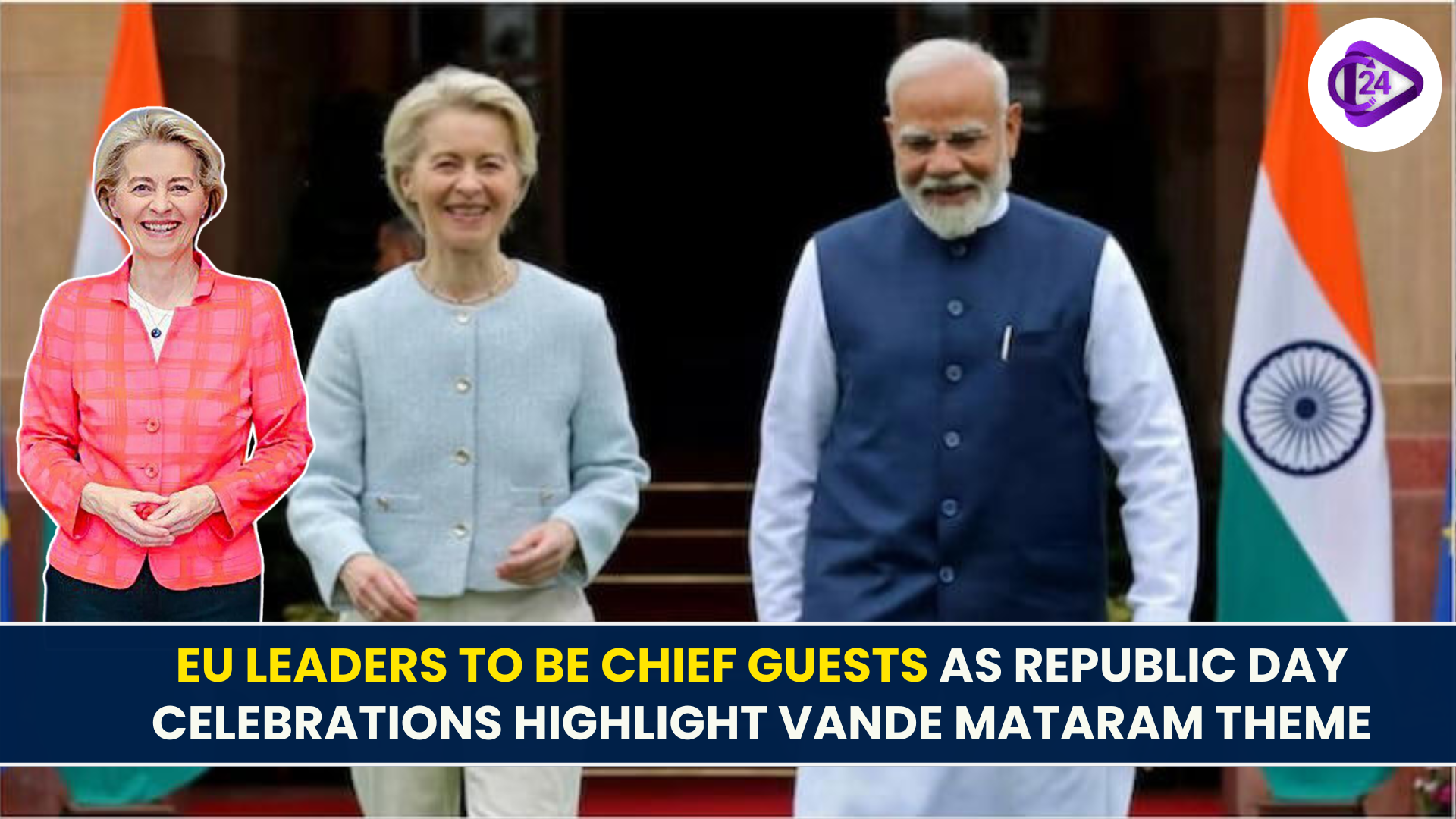 EU Leaders To Be Chief Guests As Republic Day Celebrations Highlight Vande Mataram Theme
EU Leaders To Be Chief Guests As Republic Day Celebrations Highlight Vande Mataram Theme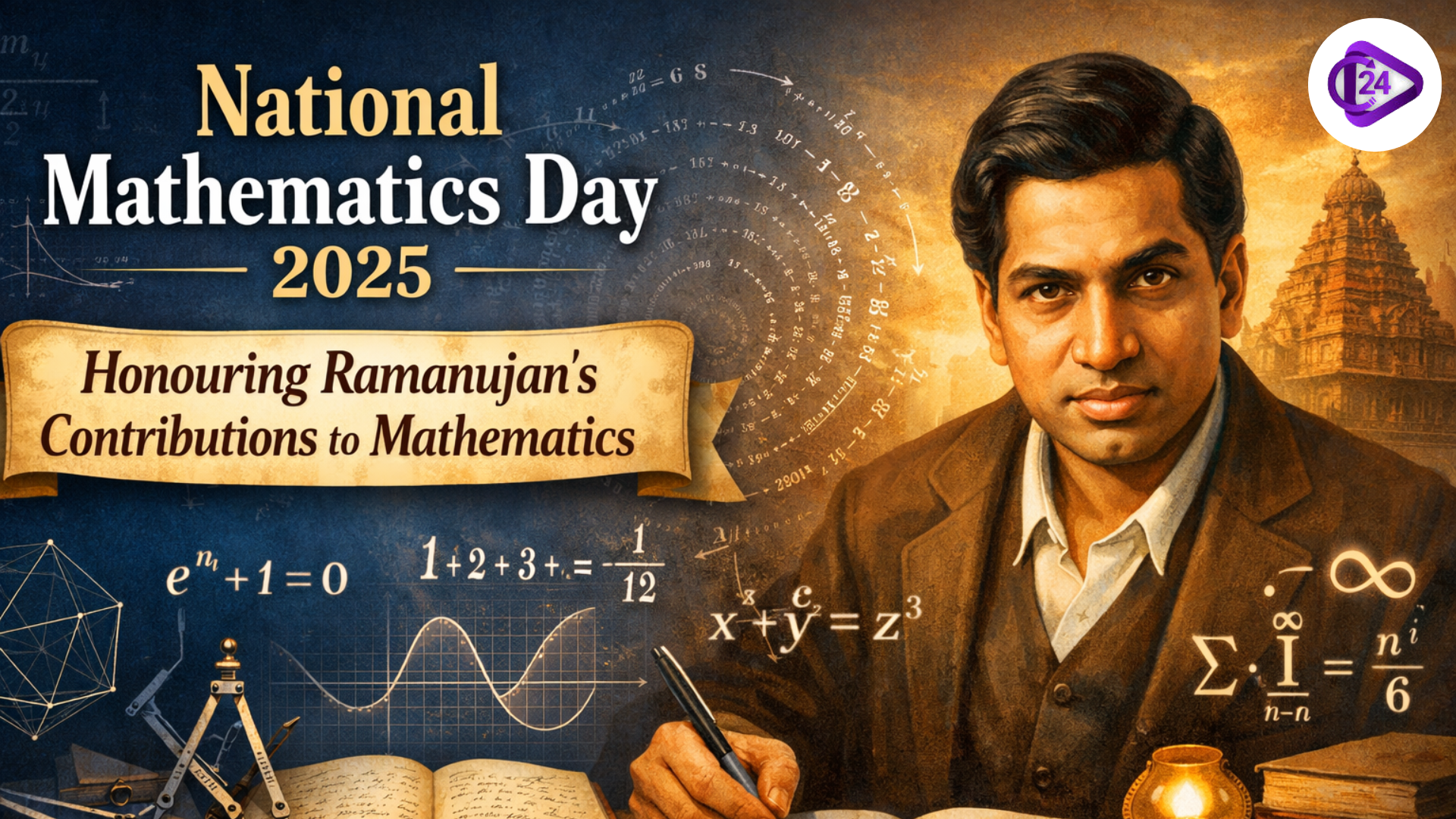 National Mathematics Day 2025: Honouring Ramanujan’s Contributions to Mathematics
National Mathematics Day 2025: Honouring Ramanujan’s Contributions to Mathematics Important Days in December 2025 – National & International Observances
Important Days in December 2025 – National & International Observances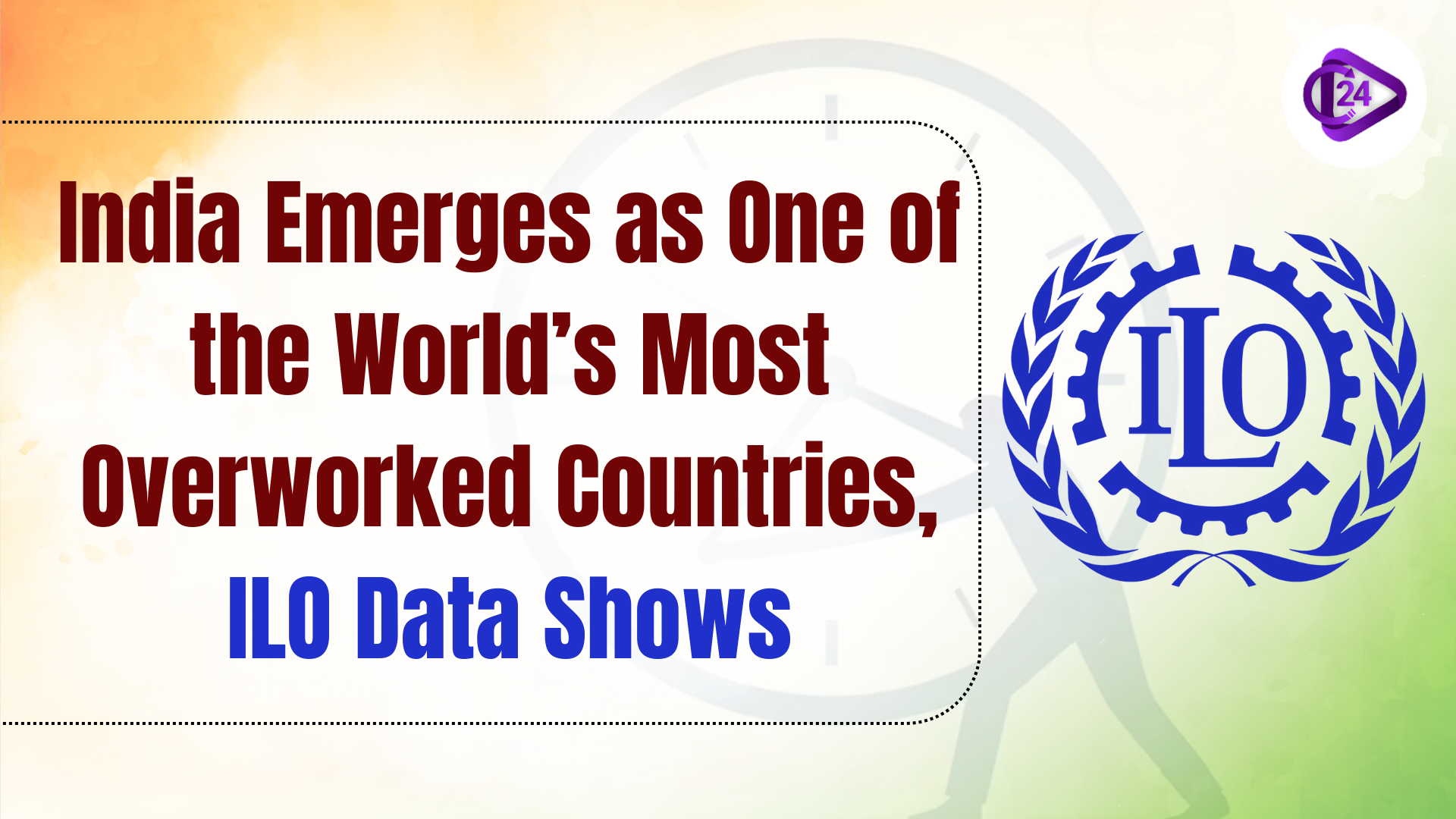 India Ranks Among Most Overworked Countries Globally, Reveals ILO
India Ranks Among Most Overworked Countries Globally, Reveals ILO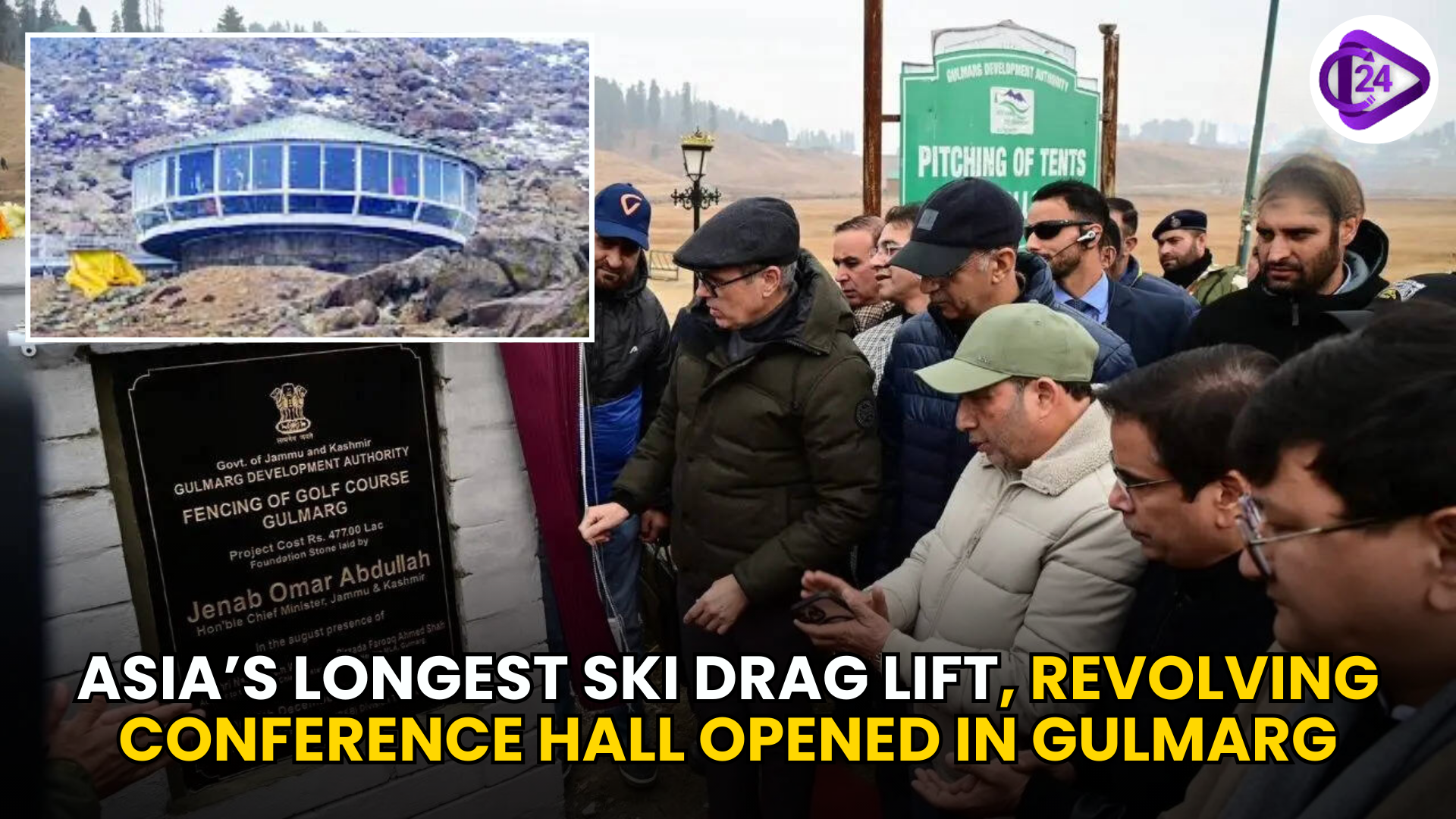 Gulmarg Gets Asia’s Longest Ski Drag Lift and First Revolving Conference Hall
Gulmarg Gets Asia’s Longest Ski Drag Lift and First Revolving Conference Hall Chhattisgarh Gets Its First Ramsar Site with Kopra Reservoir Declaration
Chhattisgarh Gets Its First Ramsar Site with Kopra Reservoir Declaration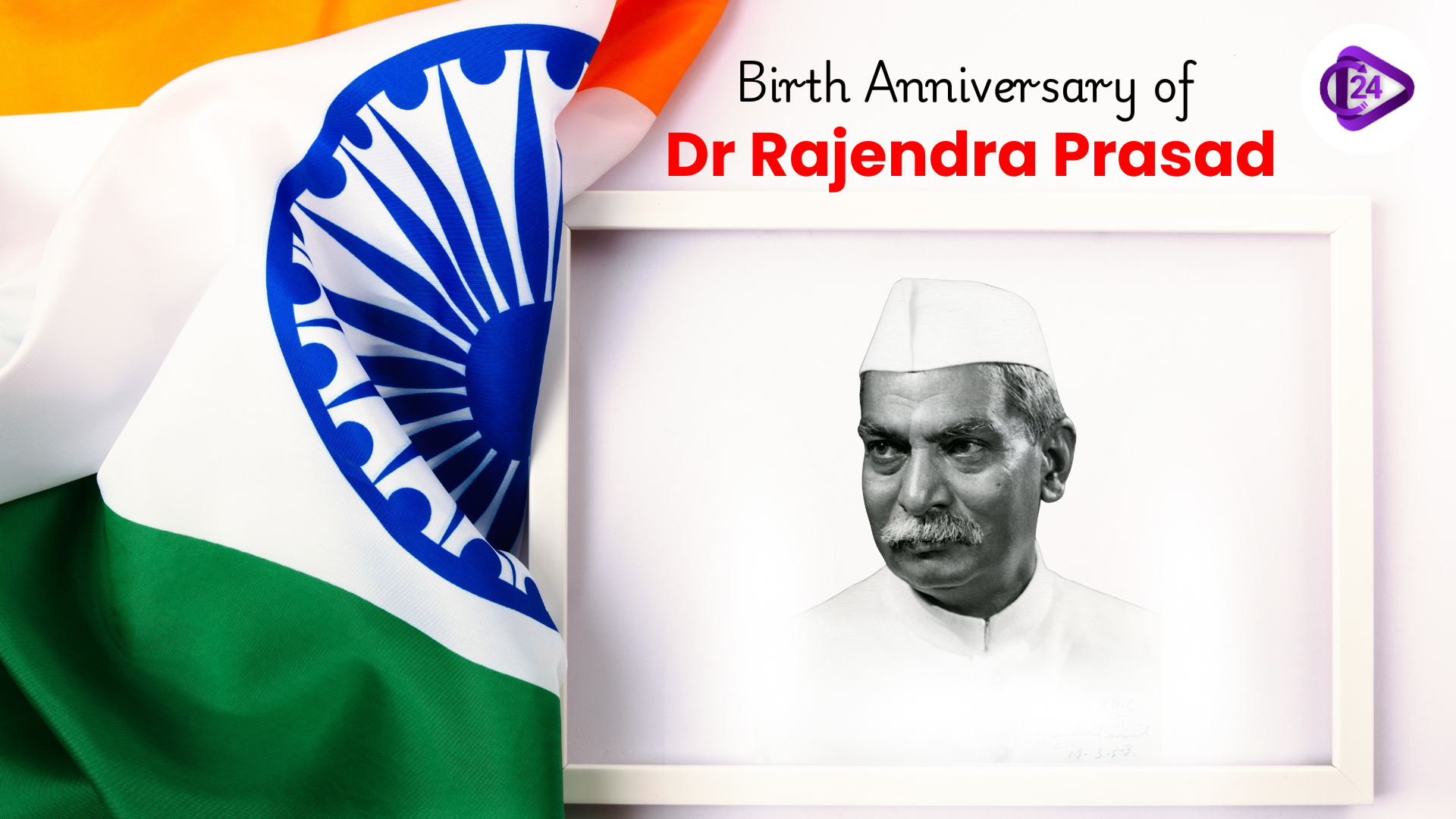 Birth Anniversary of Dr Rajendra Prasad
Birth Anniversary of Dr Rajendra Prasad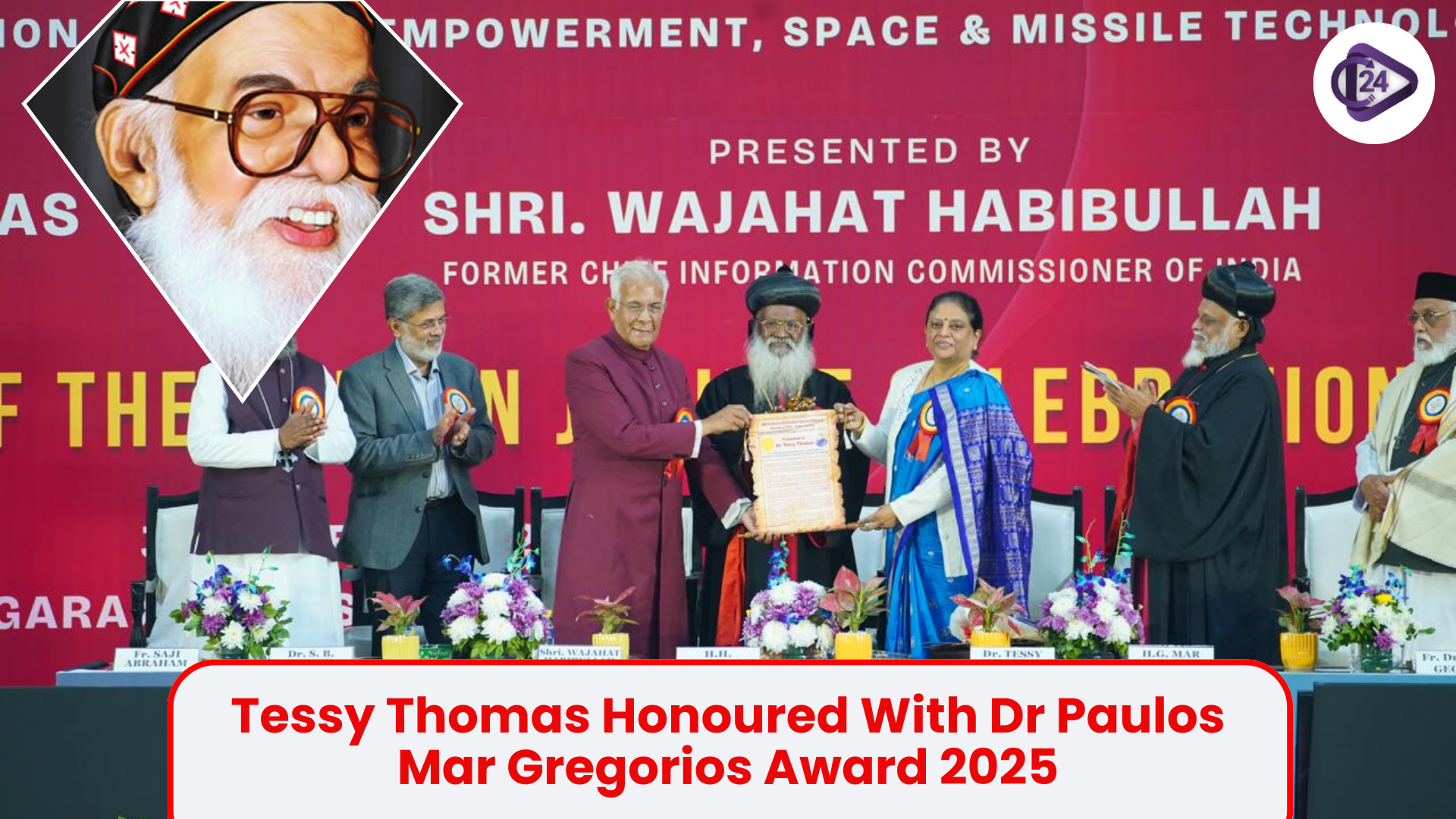 Tessy Thomas Achieves Major Recognition With Dr Paulos Mar Gregorios Award 2025
Tessy Thomas Achieves Major Recognition With Dr Paulos Mar Gregorios Award 2025 Ramban Sulai Honey GI Tag: A Major Win for Traditional Beekeeping
Ramban Sulai Honey GI Tag: A Major Win for Traditional Beekeeping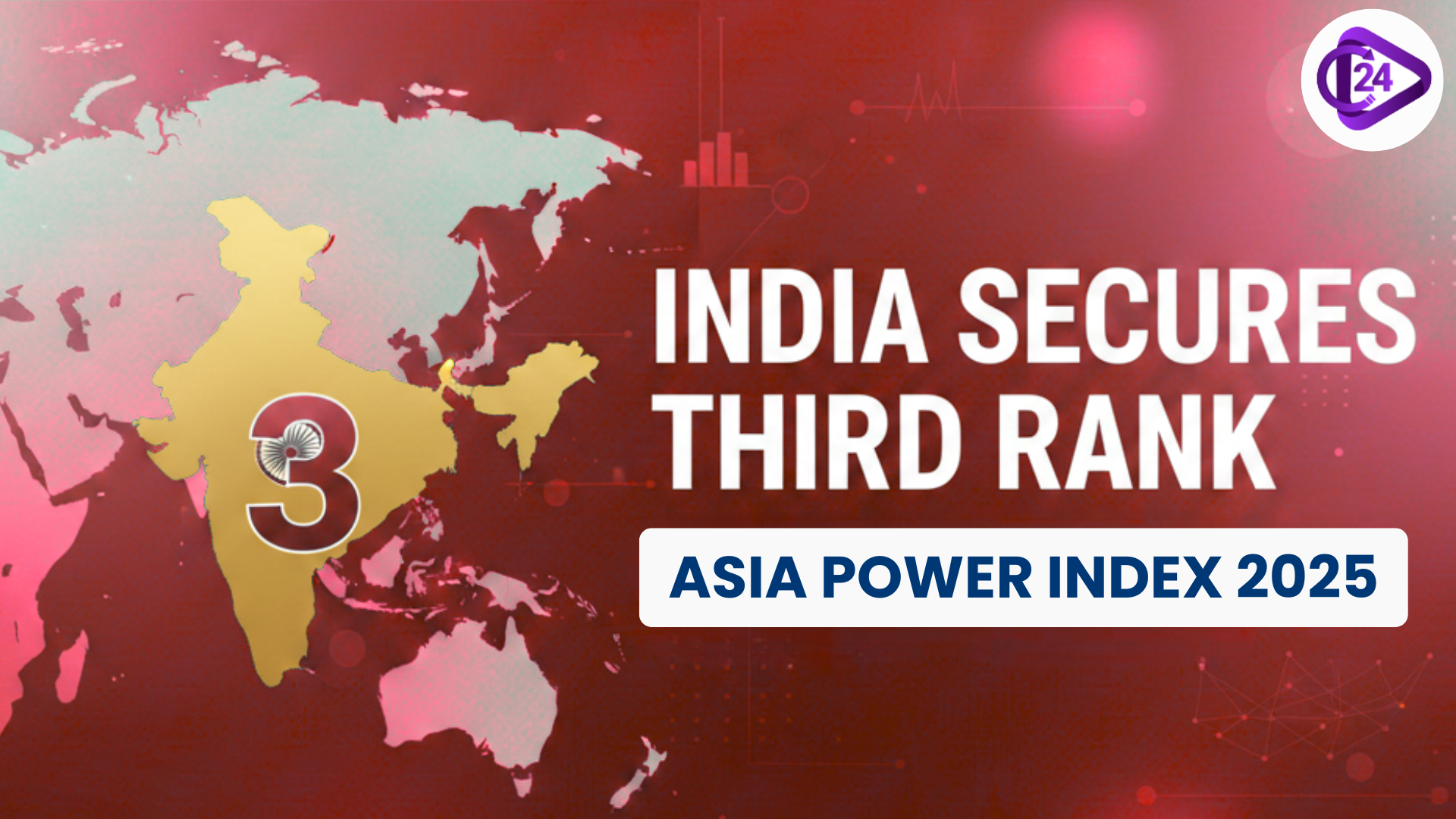 India Secures Third Rank in Asia Power Index 2025
India Secures Third Rank in Asia Power Index 2025






